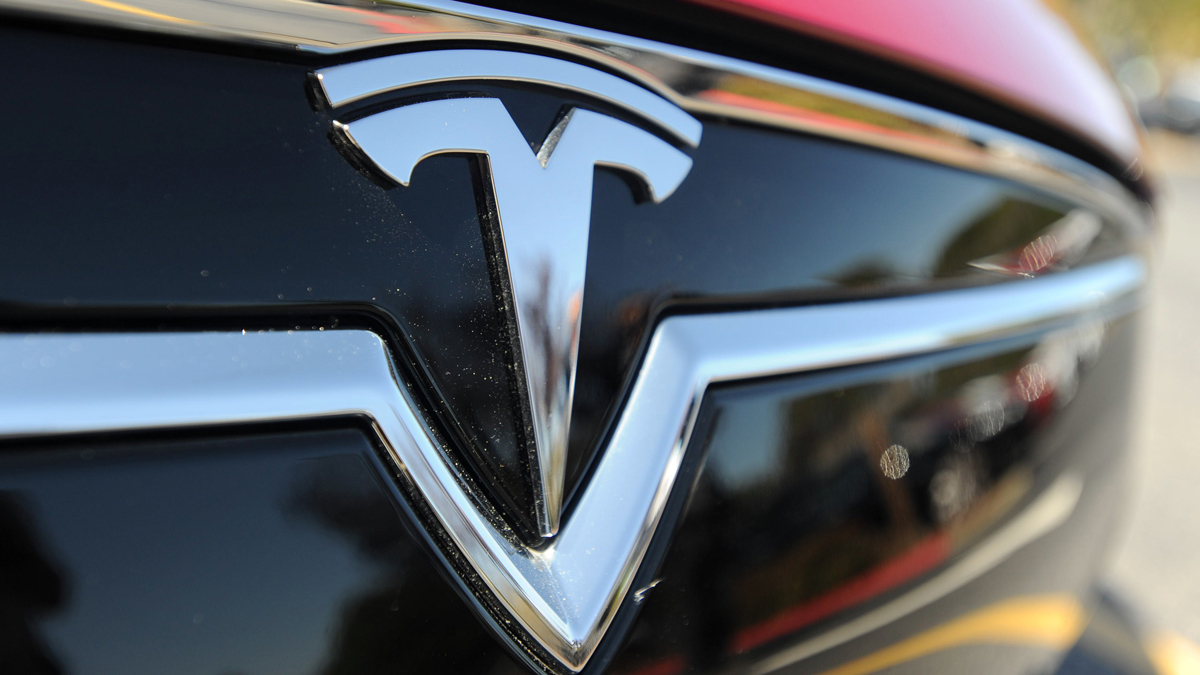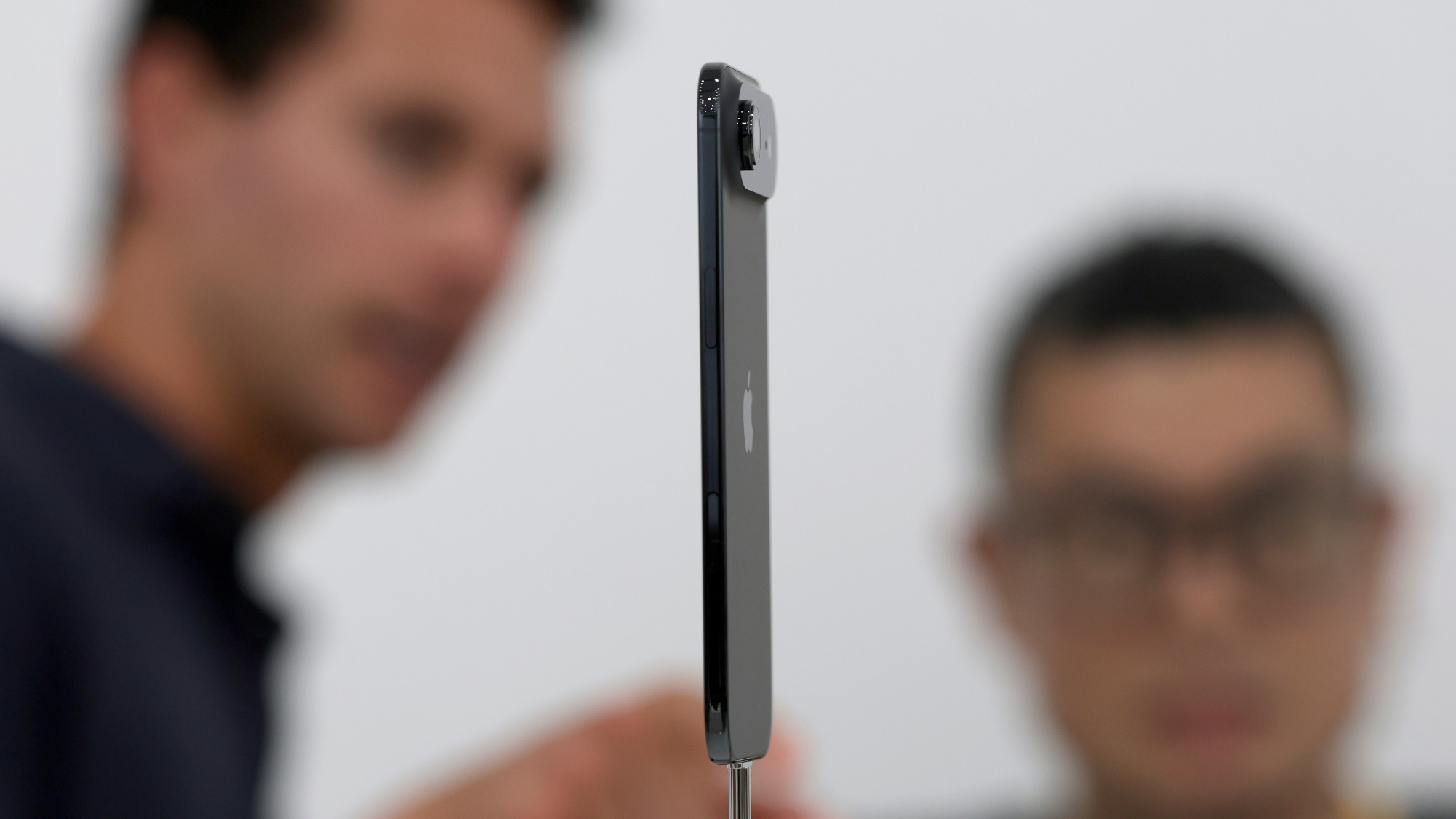Tesla's lane changer: a glimpse into the autonomous future
'Autopilot' system allows cars to change lanes by themselves without hitting pedestrians… hopefully

A free daily email with the biggest news stories of the day – and the best features from TheWeek.com
You are now subscribed
Your newsletter sign-up was successful
Electric carmaker Tesla has stolen a march on its competitors with an "autopilot" system that lets cars change lanes by themselves.
It will take the form of a software upgrade, and will be delivered to 60,000 Model S and Model X cars. The Model X, an electric SUV, was launched in California a few weeks ago.
"When you need to change lanes, you flip your turn signal and the car will move over on its own when it determines it's safe to do so," writes Fast Company, which has road-tested the new system. "We're not quite ready to simply enter an address and let the car handle everything, but it's a glimpse into our autonomous future."
The Week
Escape your echo chamber. Get the facts behind the news, plus analysis from multiple perspectives.

Sign up for The Week's Free Newsletters
From our morning news briefing to a weekly Good News Newsletter, get the best of The Week delivered directly to your inbox.
From our morning news briefing to a weekly Good News Newsletter, get the best of The Week delivered directly to your inbox.
Tesla chief executive Elon Musk has warned users to exercise caution with the new software. "It should not hit pedestrians, hopefully," he told reporters. "It should handle them well."
Playing catch-up: Tesla's rivals
The update, available in the US from today and in Europe and Asia from next week, puts Tesla a step ahead of Google, whose two-seater driverless car with a top speed of 25mph appears somewhat rudimentary in comparison.
But the BBC's Dave Lee says the two companies have competing visions of the self-driving car. "Unlike Google, which aims for a fully-autonomous vehicle, Tesla's approach is to gradually introduce features which take away the need for drivers to carry out certain functions," he says.
A free daily email with the biggest news stories of the day – and the best features from TheWeek.com
Apple, meanwhile, has also hired a string of automated driving experts. Megan McClain, a former Volkswagen engineer with expertise in automated driving, and Vinay Palakkode, a graduate researcher at Carnegie Mellon University, have both joined Apple in the past few months, as has a senior engineer from Tesla. However, the Wall Street Journal says Apple does not intend to make its first electric vehicle fully autonomous.
A future without drivers
Observers believe that the recent VW emissions crisis is likely to accelerate the emergence of electric cars – and stimulate the innovation that will lead to increased automation. Self-driving vehicles will raise significant legal and psychological questions, but they will also bring great social benefits, says David Bailey in The Guardian.
"People who are ill and immobile could enjoy enhanced mobility and freedom" he says. "Young people could access personal mobility without the need for a licence. Accidents and insurance costs could be cut dramatically, and the need for heavy crash safety features on cars could be reduced, thus saving more fuel - whether hybrid, electric or hydrogen."
-
 One great cookbook: Joshua McFadden’s ‘Six Seasons of Pasta’
One great cookbook: Joshua McFadden’s ‘Six Seasons of Pasta’the week recommends The pasta you know and love. But ever so much better.
-
 Scientists are worried about amoebas
Scientists are worried about amoebasUnder the radar Small and very mighty
-
 Buddhist monks’ US walk for peace
Buddhist monks’ US walk for peaceUnder the Radar Crowds have turned out on the roads from California to Washington and ‘millions are finding hope in their journey’
-
 Will AI kill the smartphone?
Will AI kill the smartphone?In The Spotlight OpenAI and Meta want to unseat the ‘Lennon and McCartney’ of the gadget era
-
 Has Google burst the Nvidia bubble?
Has Google burst the Nvidia bubble?Today’s Big Question The world’s most valuable company faces a challenge from Google, as companies eye up ‘more specialised’ and ‘less power-hungry’ alternatives
-
 Is Apple’s Tim Cook about to retire?
Is Apple’s Tim Cook about to retire?Today's Big Question A departure could come early next year
-
 How the online world relies on AWS cloud servers
How the online world relies on AWS cloud serversThe Explainer Chaos caused by Monday’s online outage shows that ‘when AWS sneezes, half the internet catches the flu’
-
 iPhone Air: Thinness comes at a high price
iPhone Air: Thinness comes at a high priceFeature Apple’s new iPhone is its thinnest yet but is it worth the higher price and weaker battery life?
-
 Is the UK government getting too close to Big Tech?
Is the UK government getting too close to Big Tech?Today’s Big Question US-UK tech pact, supported by Nvidia and OpenAI, is part of Silicon Valley drive to ‘lock in’ American AI with US allies
-
 Google: A monopoly past its prime?
Google: A monopoly past its prime?Feature Google’s antitrust case ends with a slap on the wrist as courts struggle to keep up with the tech industry’s rapid changes
-
 South Korea's divide over allowing Google Maps
South Korea's divide over allowing Google MapsTalking Points The country is one of few modern democracies where the app doesn't work